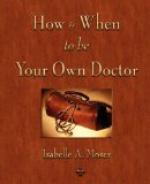The real dichotomy in food is not “chemical” fertilizer versus “Organic,” It is between industrial food and quality food. What I mean by industrial food is that which is raised with the intention of maximizing profit or yield. There is no contradiction between raising food that the “rabbis” running Organic certification bureaucracies would deem perfectly “kosher” and raising that same food to make the most possible money or the biggest harvest. When a farmer grows for money, they want to produce the largest number of bushels, crates, tons, bales per acre. Their criteria for success is primarily unit volume. Many gardeners think the same way. To maximize bulk yield they build soil fertility in a certain direction (organically or chemically) and choose varieties that produce greater bulk. However, nature is ironic in this respect. The most nutritious food is always lower yielding. The very soil management practices that maximize production simultaneously reduce nutrition.
The real problem we are having about our health is not that there are residues of pesticides in our food. The real problem is that there are only residues of nutrition left in our foods. Until our culture comes to understand this and realizes that the health costs of accepting less than optimum food far exceeds the profits made by growing bulk, it will not be possible to frequently find the ultimate of food quality in the marketplace, organically grown or not. It will not be possible to find food that is labeled or identified according to its real nutritional value. The best I can say about Organic food these days is that it probably is no less nutritious than chemically-grown food while at least it is free of pesticide residues.
The Poor Start
For this reason it makes sense to take vitamins and food supplements, to be discussed in the next chapter. And because our food supply, Organic or “conventional,” is far from optimum, if a person wants to be and remain healthy and have a life span that approaches their genetic potential (and that potential, it seems, approaches or exceeds a century), it is essential that empty calories are rigorously avoided.
An accurate and quick-to-respond indicator of how well we are doing in terms of getting enough nutrition is the state of our teeth. One famous dentally-oriented nutritional doctor, Melvin Page, suggested that as long as overall nutrition was at least 75 percent of perfection, the body chemistry could support healthy teeth and gums until death. By healthy here Page means free of cavities, no bone loss around the teeth (no wobblers), no long-in-the-teeth mouths from receding gums, no gum diseases at all. But when empty calories or devitalized foods or misdigestion cuts our nutrient intake we begin experiencing tooth decay, gum disease and bone loss in the jaw. How are your teeth?
I suppose you could say that I have a food religion, but mine is to eat so that the equation Nutrition = Health / Calories is strongly in my favor.




